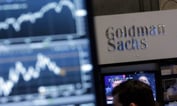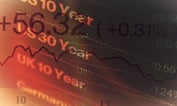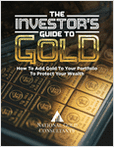DoubleLine CEO and CIO Jeffrey Gundlach is concerned about economic weakness in China, which could spill into the global economy. The fixed income expert also continues to be upbeat on agricultural commodities and is considering buying some Russian debt.
Gundlach — who correctly predicted a messy equity market and an uptick in gold miners earlier this year — shared these and other views with investors during a call Tuesday about two DoubleLine closed-end funds that invest heavily in debt securities.
When asked what his favorite investment is right now, the contrarian investor said, “I still like things such as agricultural commodities. Wheat, which suffered from low prices, is now at a high-water mark.”
As for equities, he doesn’t see S&P rising 20% this year, regardless of whether or not certain economic indicators — such as those tracking bank loans and rail-car loadings — remain strong.
“People want to act like equities are unstoppable,” explained Gundlach. “Long-term Treasuries have outperformed the S&P [500] handily year to date.”
As he reminded investors earlier in 2014, “It’s best to watch hard and fast conclusions,” especially those surrounding where the markets are headed.
The S&P 500 will likely break below its 200-day moving average “at some point this year,” Gundlach added. “It was way over that all year in 2013, so the laws of probability mean that you won’t see that happening again.”
Tapering Talk
The DoubleLine leader also discussed the end of the Federal Reserve’s quantitative easing measures and an increase in interest rates, which Fed Chairwoman Janet Yellen indicated could come in April 2015.
For interest rates to begin rising, he said, “You first have to have quantitative easing go away completely in 2014. I am not convinced this will be the case, as it’s quite likely that there will be volatility” in the economy this year.
In other words, “I do not see us out of QE in 2014. And I would not say there will be a rise [in rates] for sure in April 2015. It’s just a possibility.”
As for the U.S. housing markets, which he referred to as a general “pillar of the forward-looking economy,” there has been a softening of prices. “We will never back to where we were in 2000. That was an anomaly.”
Rather than 1.5 million yearly housing starts, Gundlach says, 1 million is likely to be “the norm for next few decades.”
Chinese Conundrum
Despite the recent jump of the Shanghai Composite Index above 2,000, the DoubleLine exec is sanguine about the Asian powerhouse.








 March 26, 2014 at 10:03 AM
March 26, 2014 at 10:03 AM









